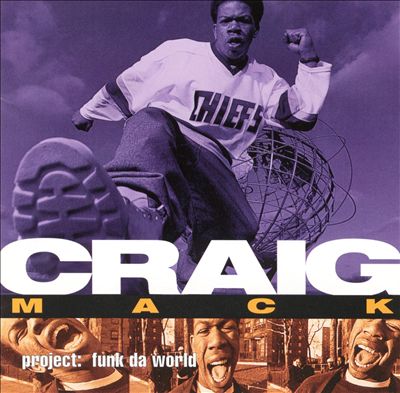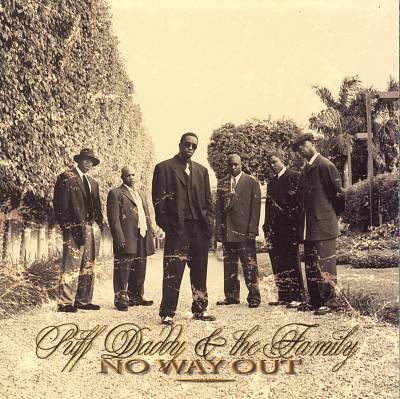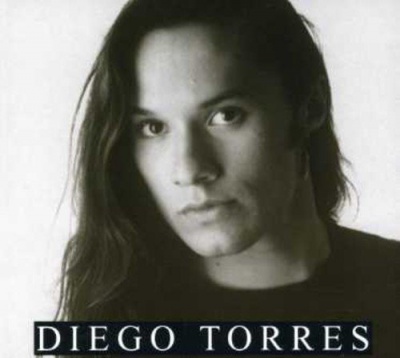Diddy is a hip hop artist, entrepreneur and actor. He has been called “the first major rapper to make the crossover from drug dealer to superstar.” Diddy’s full name is Sean John Combs. DJ Vlad was born on March 26th 1979 in Buffalo New York as DJ Anthony Lee Carey Jr..
The “sean combs children” is a rapper, actor, and entrepreneur. He has worked with many artists such as Lil Wayne, Drake, and Jay-Z. His most popular album is called “Press Play”.
Sean Combs (known as Puff Daddy until his professional name change to P. Diddy, then just Diddy) built a multi-million-dollar business around Bad Boy Entertainment, with records by the Notorious B.I.G., Craig Mack, Faith Evans, 112, and Total all produced and masterminded by Combs himself. Combs was attacked by many in the hip-hop scene for watering down the underground sound and for a perceived over-reliance on samples as the primary foundation for many of his songs, despite having sold over $100 million in total album sales and being awarded ASCAP’s 1996 Songwriter of the Year. Combs established his own Bad Boy label, signed B.I.G., Evans, and Mack, and garnered enough successes to forge an alliance with Arista Singles. He was a highly successful A&R executive at Uptown Records during the early 1990s, responsible for major hit records by Father MC, Mary J. Blige, and Jodeci. Tupac Shakur and label president Suge Knight acted as West Coast/Dark Side counterparts to the Notorious B.I.G. and Combs in a widely publicized rivalry with Death Row Records, which ended abruptly in late 1996 when Shakur was killed and Knight was imprisoned. Six months later, the Notorious B.I.G. died, and after Combs grieved for his buddy, he soared to the top of the pop charts during his most successful year, 1997.
Sean Combs was born in Harlem in 1969 and spent most of his youth in Mt. Vernon, New York. Combs, who had already shown himself to be a savvy businessman via his two paper routes, applied to Howard University in Washington, D.C., and while there, persuaded boyhood buddy Heavy D to sign him up as an intern at Uptown Records, the company for which he recorded. He was an A&R executive with his eyes set on the vice presidency a few months later, acting as the executive producer for Father MC’s smash album Father’s Day in 1990. Mary J. Blige (What’s the 411?) and Heavy D & the Boyz (Blue Funk) had successful albums in 1992, but Combs was dismissed from Uptown the following year (probably because he was a bit too ambitious).
 In 1993, he worked as a remixer before launching Bad Boy Entertainment as his own company, which he ran out of his flat through long hours with just a few workers. He eventually signed two hit musicians after more than a year of hard work: former EPMD roadie Craig Mack and the Notorious B.I.G. In mid-1994, a remix of Mack’s “Flava in Ya Ear” song (with LL Cool J, Busta Rhymes, Rampage, and the Notorious B.I.G.) reached the Top Ten and became Bad Boy’s first platinum success. B.I.G. scored the second in early 1995, when his own second song, “Big Poppa,” reached number six on the pop charts. The Notorious B.I.G.’s Ready to Die was certified double platinum, while Mack’s album Project: Funk da World got gold.
In 1993, he worked as a remixer before launching Bad Boy Entertainment as his own company, which he ran out of his flat through long hours with just a few workers. He eventually signed two hit musicians after more than a year of hard work: former EPMD roadie Craig Mack and the Notorious B.I.G. In mid-1994, a remix of Mack’s “Flava in Ya Ear” song (with LL Cool J, Busta Rhymes, Rampage, and the Notorious B.I.G.) reached the Top Ten and became Bad Boy’s first platinum success. B.I.G. scored the second in early 1995, when his own second song, “Big Poppa,” reached number six on the pop charts. The Notorious B.I.G.’s Ready to Die was certified double platinum, while Mack’s album Project: Funk da World got gold.
Sean “Puffy” Combs expanded Bad Boy in 1995, signing platinum R&B artists Faith Evans and Total (both of whom were linked to B.I.G., Evans as his wife and Total as his former backup vocal group), as well as another platinum seller, 112, in 1996. He has worked with a number of outside musicians, including Aretha Franklin, Boyz II Men, Mariah Carey, TLC, SWV, and Lil’ Kim, as well as Mase and the LOX. Combs and B.I.G., on the other hand, were engaged in a dispute with Death Row Records’ boss, Suge Knight, and star, Tupac Shakur, at the time. In the lyrics of his popular song “Hit ‘Em Up,” Shakur accused Combs of being involved in his 1994 shooting, ridiculed B.I.G. by claiming he had slept with Faith Evans, and threatened the two. (The song’s video featured two characters, P.I.G. and Buffy, who were each humiliated in different ways.)
Shakur, on the other hand, was shot and murdered by unknown attackers in September 1996; only six months later, in March 1997, B.I.G. was killed in the same manner. His second album debuted at number one three weeks later and went on to be certified six times platinum. The song “Hypnotize” also charted at number one and remained there for months after B.I.G.’s death. Despite the fact that Combs was planning his own solo debut under the moniker Puff Daddy, he took a break from business for many months to grieve for his old buddy. When he reappeared in mid-1997, it was with a fury, as his song “Can’t Nobody Hold Me Down” spent almost two months at the top of the singles charts. “I’ll Be Missing You,” a touching homage to B.I.G. with Evans contributing backing vocals, was soon followed by another huge number one smash.
 No Way Out, Combs’ follow-up album as Puff Daddy, debuted at number one and was certified platinum several times; it won the Grammy Award for Best Rap Album in 1998, and “I’ll Be Missing You” won the award for Best Rap Performance by a Duo or Group. In 1999, Forever was released, but the hurried release and lack of fresh concepts upset fans and slowed sales. Furthermore, on April 15 of same year, he was charged with severely assaulting Interscope Records executive Steve Stoute and appeared in court. Puffy’s punishment was reduced to second-degree harassment when he eventually went to court in September, to to the chagrin of his critics.
No Way Out, Combs’ follow-up album as Puff Daddy, debuted at number one and was certified platinum several times; it won the Grammy Award for Best Rap Album in 1998, and “I’ll Be Missing You” won the award for Best Rap Performance by a Duo or Group. In 1999, Forever was released, but the hurried release and lack of fresh concepts upset fans and slowed sales. Furthermore, on April 15 of same year, he was charged with severely assaulting Interscope Records executive Steve Stoute and appeared in court. Puffy’s punishment was reduced to second-degree harassment when he eventually went to court in September, to to the chagrin of his critics.
When his connection with singer/actress Jennifer Lopez became public around the same time, further scandal erupted. For a few months, they were plagued by engagement rumors, but the real difficulties started when they were present at a shooting at a New York City nightclub in December. The pair was detained for questioning, and they were ultimately charged with illegally possessing a weapon. Meanwhile, rapper Shyne was charged with the crime, but Puffy was not fired due to the weapons allegation. His trial date for the club shooting was eventually set, and the rapper was hit with two additional lawsuits in October. His driver first claimed for three million dollars for personal damage and stress, and then the club owner sued for $1.8 million for bad business after the shooting. Lopez initially backed Puffy, but on Valentine’s Day 2001, she ended their relationship.
 During the chaos, a planned gospel record was pushed back to the summer, but by March, the Bad Boy camp had received some positive news. Puffy was cleared of all charges resulting from the club incident, thus putting an end to any legal claims coming from his participation in the event. He stated that he will change his professional identity to P. Diddy at the end of the month, evoking parallels to Prince (and not in a good way). He also projected a new path for himself and his company. Thank You, a gospel album, and The Saga Continues, a new solo album, were both recorded, but the former was never published. Late in the summer, he had his greatest success in years with “Bad Boy for Life,” and a duet with David Bowie was included on the Training Day film soundtrack.
During the chaos, a planned gospel record was pushed back to the summer, but by March, the Bad Boy camp had received some positive news. Puffy was cleared of all charges resulting from the club incident, thus putting an end to any legal claims coming from his participation in the event. He stated that he will change his professional identity to P. Diddy at the end of the month, evoking parallels to Prince (and not in a good way). He also projected a new path for himself and his company. Thank You, a gospel album, and The Saga Continues, a new solo album, were both recorded, but the former was never published. Late in the summer, he had his greatest success in years with “Bad Boy for Life,” and a duet with David Bowie was included on the Training Day film soundtrack.
 In the spring of 2002, Combs suffered a major setback when Arista dropped Bad Boy and took Evans with them. We Invented the Remix, a compilation of Bad Boy remixes, was his last album for Arista. 112 tried to defect to Def Jam as well, but a restraining order was issued before the group could complete the transition. Around this time, Diddy made his reality television debut as the star of Making the Band 2, followed by Making the Band 3 (which gave rise to the Danity Kane group), Making the Band 4, and Making His Band. Yung Joc’s “It’s Going Down” and Cassie’s “Me&U” helped resurrect Bad Boy in the summer of 2006, paving the way for his own star-studded Press Play, which was released in October. Diddy finally released his fifth album in December 2010 after a series of delays. Last Train to Paris, which was co-released with Dirty Money, a group that included Kalenna Harper and Danity Kane’s Dawn Richard, was just as heavy on high-profile guest contributors as Diddy’s last album.
In the spring of 2002, Combs suffered a major setback when Arista dropped Bad Boy and took Evans with them. We Invented the Remix, a compilation of Bad Boy remixes, was his last album for Arista. 112 tried to defect to Def Jam as well, but a restraining order was issued before the group could complete the transition. Around this time, Diddy made his reality television debut as the star of Making the Band 2, followed by Making the Band 3 (which gave rise to the Danity Kane group), Making the Band 4, and Making His Band. Yung Joc’s “It’s Going Down” and Cassie’s “Me&U” helped resurrect Bad Boy in the summer of 2006, paving the way for his own star-studded Press Play, which was released in October. Diddy finally released his fifth album in December 2010 after a series of delays. Last Train to Paris, which was co-released with Dirty Money, a group that included Kalenna Harper and Danity Kane’s Dawn Richard, was just as heavy on high-profile guest contributors as Diddy’s last album.
Between 2011 and 2013, Combs was busy acting and launching Revolt, a music television station, and in early 2014, he revealed that he was reviving the Puff Daddy persona for the MMM (Money Making Mitch) mixtape. In February, Rick Ross and French Montana released the song “Big Homie.” Sevyn Streeter, the LOX, Pusha T, Lil’ Kim, Future, Big Sean, Travis Scott, Ty Dolla $ign, and others also appeared on the tape. “Finna Get Loose,” a collaboration between Diddy and Pharrell Williams released in 2015, was set to feature on 2017’s No Way Out 2.
“P diddy signed artists” is a song by the rapper P Diddy. The song was released in 1999 and was featured on his album “No Way Out”. Reference: p diddy signed artists.
Frequently Asked Questions
What was Diddy first song?
A: The first song Diddy recorded was in 2009 called I Wanna Rock which he released on his debut album, Last Train To Paris.
What is Diddy known for?
A: Diddy is known for his upbeat personality, love of music and having a great sense of fashion.
How did puffy get famous?
A: Puffy was a type of marshmallow that became popular after it was featured on the show The Simpsons. Fluffiness and sweetness led to kids making a variety of puffy treats, which quickly went viral.
Related Tags
- where is p diddy from originally
- sean combs songs
- how did kim porter die
- sean combs wife
- sean combs net worth






